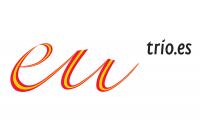
As the new holder of the European Union presidency, Spain is taking a hands-on approach to shaping the use of technical cooperation for capacity development (see related article). So what’s Spain’s track record in this area?
In Spain, international development cooperation is a fairly young sector. Spain only joined the Development Assistance Committee – an international forum for donor governments and multilateral organisations – in 1991, almost thirty years after it was established. That this sector is relatively new partly explains the large number of channels and instruments through which Spanish bilateral technical cooperation is provided.
Furthermore, Spain’s donor experience has largely been limited to the South American region, which has linguistic and historical ties with Spain. This experience in South America has informed how Spain carries out its technical assistance.
Cooperation activities are extensively decentralised and have their origin in the strong regional identity of the country. This reflects the need felt by regional actors to undertake development activities within their own discretion. While this helps to strengthen regional identity within the Spanish Peninsula, the positive effects for aid receiving countries might be rather mixed.
A critical Development Assistance Committee peer review on Spain, published in 2007, recommended improving coordination and the division of labour in its aid system and stressed that arrangements are needed at the field level to coordinate the different Spanish actors and instruments during planning, implementation and evaluation.
The Main Players
The Spanish Agency for International Development, AECID (www.aecid.es)
AECID is the Spain’s principle provider of technical cooperation. As a semi-autonomous aid agency attached to the Ministry of Foreign Affairs and International Cooperation, it manages and supervises approximately one-third of Spain’s bilateral overseas development assistance, which totalled some 3.5 billion Euro in 2008. The AECID supervises some 42 technical cooperation offices in partner countries, 19 cultural centres and four training centres.
The 2007 DAC peer review called for AECID to advance its reform to improve the quality and impact of Spanish aid. Some action has been taken. To date, AECID’s has increased the powers of offices in partner countries so that they can better respond to partner demands.
The International and Ibero-American Foundation for Administration and Public Policies, FIIAPP (www.fiiapp.org)
FIIAPP is a foundation at the service of the Spanish administration in the area of international technical cooperation for development. The foundation has a public mandate to support processes of democratic construction and social cohesion in developing countries. It supports institution building processes, trains leaders committed to the fight against inequality and poverty and encourages public policies that ensure that the whole population, above all the most vulnerable sectors, has access to basic services. FIIAPP is active in over 60 countries in Europe, Latin America, Africa and Asia.
The NGOs
Almost one-third of Spanish bilateral ODA goes through Non-governmental organisations, or NGOs. This is considered a rather high portion when compared to other donor countries. The Netherlands, for example, directs closer to 20 per cent of its ODA through NGOs. And the web-site of the Spanish NGO platform organisation, Coordinadora (http://www.congde.org), lists more than 90 member organisations working in relief, rehabilitation and development throughout a variety of sectors.
Spain’s ‘Decentralised Cooperation Activities’
The diverse set-up of Spanish development cooperation is further characterised by a range of so-called decentralised cooperation activities undertaken at the regional, provincial and municipal level.
Most prominent among these is the Catalan Government. The Catalan Agency for Development Cooperation, ACCD, is responsible for managing the Government of Catalonia’s development cooperation, peace building and humanitarian action policy. Its annual budget has increased from 65.5 million Euro in 2007 to 103 million Euro in 2009, channelled through ACCD as well as various Catalan Ministries.
The aid provided by ACCD is not included in the DAC registered ODA provided by the Spanish Government. Other parties are the Catalan Development Cooperation Fund (Fons Catalá) which is made up of 290 members, mainly from local government, NGOs and social organisations.
There are also Funds from other regions of the Peninsula, such as the Andalusia Municipalities Fund for International Solidarity (FAMSI), the Local Extremaduran Fund for Development Cooperation (FELCODE) and the Galician Fund for Cooperation and Solidarity.
Other funding for international cooperation originates from the Basque Government, the Province of Barcelona, various Foundations and Associations and a wide range of municipalities from all over Spain. All are part of the international cooperation initiative ART, Articulation of Territorial and Thematic Networks of Cooperation for Human Development www.art-initiative.org and supported by various UN agencies. The ART International Initiative supports national and local governments in the implementation of the national decentralisation and territorial development policies.
Log in with your EU Login account to post or comment on the platform.